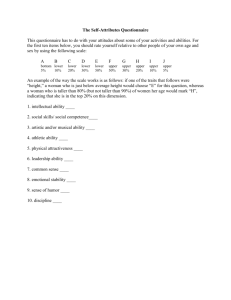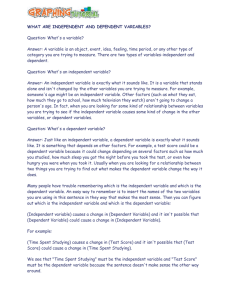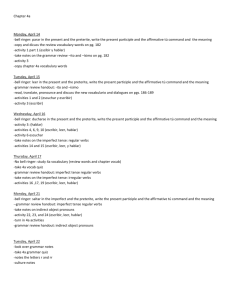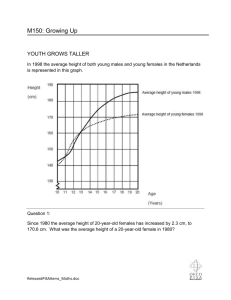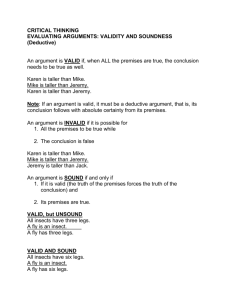El arte de escribir y técnicas de investigación formal
advertisement
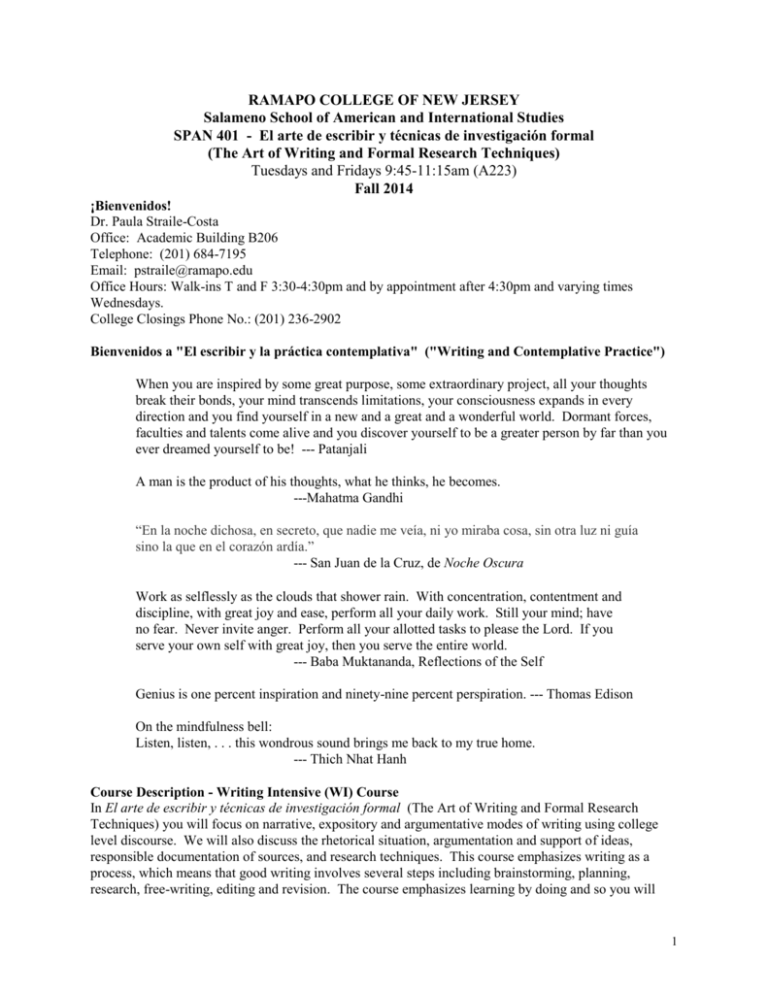
RAMAPO COLLEGE OF NEW JERSEY Salameno School of American and International Studies SPAN 401 - El arte de escribir y técnicas de investigación formal (The Art of Writing and Formal Research Techniques) Tuesdays and Fridays 9:45-11:15am (A223) Fall 2014 ¡Bienvenidos! Dr. Paula Straile-Costa Office: Academic Building B206 Telephone: (201) 684-7195 Email: pstraile@ramapo.edu Office Hours: Walk-ins T and F 3:30-4:30pm and by appointment after 4:30pm and varying times Wednesdays. College Closings Phone No.: (201) 236-2902 Bienvenidos a "El escribir y la práctica contemplativa" ("Writing and Contemplative Practice") When you are inspired by some great purpose, some extraordinary project, all your thoughts break their bonds, your mind transcends limitations, your consciousness expands in every direction and you find yourself in a new and a great and a wonderful world. Dormant forces, faculties and talents come alive and you discover yourself to be a greater person by far than you ever dreamed yourself to be! --- Patanjali A man is the product of his thoughts, what he thinks, he becomes. ---Mahatma Gandhi “En la noche dichosa, en secreto, que nadie me veía, ni yo miraba cosa, sin otra luz ni guía sino la que en el corazón ardía.” --- San Juan de la Cruz, de Noche Oscura Work as selflessly as the clouds that shower rain. With concentration, contentment and discipline, with great joy and ease, perform all your daily work. Still your mind; have no fear. Never invite anger. Perform all your allotted tasks to please the Lord. If you serve your own self with great joy, then you serve the entire world. --- Baba Muktananda, Reflections of the Self Genius is one percent inspiration and ninety-nine percent perspiration. --- Thomas Edison On the mindfulness bell: Listen, listen, . . . this wondrous sound brings me back to my true home. --- Thich Nhat Hanh Course Description - Writing Intensive (WI) Course In El arte de escribir y técnicas de investigación formal (The Art of Writing and Formal Research Techniques) you will focus on narrative, expository and argumentative modes of writing using college level discourse. We will also discuss the rhetorical situation, argumentation and support of ideas, responsible documentation of sources, and research techniques. This course emphasizes writing as a process, which means that good writing involves several steps including brainstorming, planning, research, free-writing, editing and revision. The course emphasizes learning by doing and so you will 1 analyze models of styles and techniques in order to be able to comprehend their effects and use them well. Then you will apply the techniques in your own work. Finally you will reflect on your process and analyze your own work and dialogue with each other about your choices. You will have the opportunity to revise all major papers. For help outside the classroom, please see me during my office hours and/or work with a writing tutor in the Center for Reading and Writing (CRW), in the Potter Library, Room: L211, x7557, crw@ramapo.edu. You may also see one of the Spanish tutors in the AIS lab in B127 between the hours of 8:00am and 5:00pm Monday - Friday. Here we highlight writing skills, however, if you apply yourself, you will improve your Spanish proficiency in all the skills. Reading and writing are excellent ways to greatly improve your literacy, fluency, vocabulary and accuracy in Spanish no matter your current proficiency. Furthermore, communication and rhetorical skills transfer to any other languages you use! Contemplative practice will enhance our study of language and writing. We will experiment with some forms of meditation and contemplation intended to quiet the mind and give you access to your inner wisdom and insight and to an awakened perception of the world. The act of reading (or experiencing any form of art) and writing (like other forms of self-expression) are not only forms of inquiry and discovery, but can also be reflective even transformative. One regular practice will be to approach our readings as lectio divina, a contemplative form of reading drawing from the Christian and Jewish sacred traditions. Mindfulness Buddhist practices such as deep listening, beholding, and compassion will enrich our writing practice and how we conduct workshops and interact with one another. Along with the modes of writing mentioned above, we will practice reflective writing in order to understand and remember what we learn. The contemplative practices here originate within specific cultural traditions whose ultimate aim of reaching the highest spiritual attainment, such as enlightenment or union with a particular God, for instance. We respect and honor these traditions, however, the practices here are somewhat abstracted from their religious context. Certainly you can expect to lessen suffering, increase focus and contentment, enjoy your work and increase your awareness and connection to others. No one should feel pressured to alter his or her personal spiritual belief, tradition, or practice, or adopt new ones. One may adapt these secular practices to one's spiritual faith as desired. Likewise, please do not feel pressured to share more than you feel comfortable sharing of your personal spiritual or religious beliefs. Objectives – measured by papers, homework assignments, quizzes and class discussions Analyze and discuss narrative, expository and argumentative modes of writing using college level discourse Explore the rhetorical situation, i.e. the writer’s ethos or persona, appealing to a particular audience, using logic, etc… Hone skills in argumentation and logic Clarify matters of evaluating and responsible documentation of sources and avoiding plagiarism Employ a process-oriented method for writing, brainstorming, free-writing, editing, revision, etc... Become more knowledgeable and confident in most matters of Spanish language Improve proficiency and confidence in writing Master accent placement once and for all Measured in the CEC activities, in class contemplative practices and the journal Analyze and reflect on the writing process Use contemplative practices to read and communicate (orally and in written form) more effectively and enhance your academic experience (and life!) overall Use writing as a way of deepening contemplative practice Prerequisites: SPAN 301, El arte de conversar, or equivalent proficiency. 2 General Education: This course fulfills the International Issues category because it allows us to analyze and interpret a variety of issues in the Spanish-speaking nations as well as their interconnectedness to other nations, such as the United States. Proficiency Guidelines based on the ACTFL Advanced skill level: The advanced level in general can narrate and describe in past, present and future time/aspect, and handle a complicated situation or transaction. Those of you seeking a Spanish major and/or teacher certification will need to demonstrate this level of proficiency in speaking and writing. See downloadable descriptions of all levels at www.actfl.org under the ‘Publications’ menu. Speaking: Advanced speakers participate actively in most informal and a limited number of formal conversations on activities related to school, home, and leisure activities and, to a lesser degree, those related to events of work, current, public, and personal interest or individual relevance. They demonstrate the ability to narrate and describe in all major time frames (past, present and future) in paragraph length discourse, but control of aspect may be lacking at times. They can handle appropriately the linguistic challenges presented by a complication or unexpected turn of events that occurs within the context of a routine situation, though at times their discourse may be strained. Structure of the dominant language is still evident in the use of false cognates, literal translations, or the structure of the speaker's own language rather than that of the target language. Shortcomings can often be smoothed over by strategies like pause fillers, rephrasing and circumlocution. While there may still be some groping for words, the advanced speaker can be understood by native interlocutor. Listening: Advanced listeners are able to understand main ideas and most details of connected discourse on a variety of topics beyond the immediate situation. Comprehension may be uneven and topic familiarity is a very prominent factor. Texts involve description and narration in different time frames or aspects, such as present, habitual or imperfective. Texts may include interviews, short lectures on familiar topics, and news items and reports of a factual nature. Reading: Advanced readers are able to read somewhat longer prose of several paragraphs particularly if provided the underlying structure. Reader gets the main ideas and facts and misses some details. Comprehension derives from knowledge of familiar situations and subject matter and from increasing control of language. Texts include descriptions, narrations such as simple short stories, news items, bibliographical information, social notices, personal correspondence, and technical materials intended for the general reader. *Writing: Writers at the Advanced-Low level are able to meet basic work and/or academic writing needs, produce routine social correspondence, write about familiar topics by means of narratives and descriptions of a factual nature, and write simple summaries. They demonstrate the ability to narrate and describe in major time frames with some control of aspect. These writers are able to combine and link sentences into texts of paragraph length and structure. Their writings, while adequate to satisfy the criteria of the Advanced level, may not be substantive. Writers at the Advanced-Low level demonstrate an ability to incorporate a limited number of cohesive devices but may resort to much redundancy, and awkward repetition. Subordination in the expression of ideas is present and structurally coherent, but generally relies on native patterns of oral discourse or the writing style of the writer’s first language. These writers demonstrate sustained control of simple target-language sentence structures and partial control of more complex structures. When attempting to perform functions at the Superior level, their writing will deteriorate significantly. Writing at this level is understood by natives not used to the writing of non-natives although some additional effort may be required in the reading of the text. 3 Required Texts: Bleichmar, Guillermo and Paula Cañon. Taller de escritores: Grammar and Composition for Advanced Spanish. Boston, MA: Vista Higher Learning, 2012. Supersite code package – (if you bought this text online used, please make sure to order the code since it will be vital to many of our activities.) An adequate Spanish/English or all Spanish Dictionary: online versions like Wordreference.com are excellent! Recommended texts: Some may want to purchase an additional in-depth Spanish grammar reference text. This one is very detailed in rules, exceptions and examples (since this is in English there may be better examples in Spanish, such as those published by the Royal Academy): Butt, John and Carmen Benjamin. A New Grammar of Modern Spanish. NTC Publishing Group: Lincolnwood, Illinois, 1995. This one is very concise (and cheap) but not nearly as detailed: Gac-Artigas, Priscilla and Gustavo Gac-Artigas, Directo al grano: A complete reference manual for Spanish Grammar. Upper Saddle River, New Jersey: Prentice Hall, 2000. Visual dictionaries and those focusing on synonyms/antonyms and idioms (expressions that do not translate easily) will benefit writers tremendously. Spanish Studies Majors should have a well-stocked library of language materials. Rules for Writers by Diana Hacker, Sixth Edition, New York: Bedford/St. Martin’s Press, 2009. (5th edition is fine)Use the free online version at www.dianahacker.com/rules. There are excellent online activities with the website if you feel you need additional practice. If you have a writing style guide used in your discipline you may want to refer to it as well. Requirements and evaluative breakdown: Grades: Participation Homework and Quizzes Initial 5 Papers (5% each) Final 2 papers (10% and 15%) CEC activities Grading Scale: A 94 -100 B+ 87-89 A- 90-93 B 84-86 B- 80-83 C+ 77-79 C 74-76 C- 70-73 15% 25% 25% 25% 10% D+ 67-69 D 60-66 F below 60 Participation (15%) In this course’s workshop format you will need to be present in body and mind and hopefully also in-spirit, that is, in-spired! The promise of this course is that you will reach a new level of proficiency, confidence and ease with Spanish! If you want to get what is possible here, you must REALLY SHOW UP! If you want to get the most out of life, SHOW UP, BE PRESENT in your life!! We will talk about what it means to be present in this class, but for now, excellent attendance means nearly always speaking in Spanish, listening attentively to others to improve comprehension, participating actively and enthusiastically and assisting others to do the same. Please see criteria for evaluation of participation in the syllabus. You are expected to come with the texts and course materials required for each class as well as written assignments due on a given day. Students are 4 limited to 2 absences without penalty. Thereafter, the final class grade will be lowered for each absence. Anyone missing 8 classes or more for any reason will fail the class. Two tardy arrivals (beyond 10 minutes) will equal an absence. You are responsible for all material and assignments you miss in the event you cannot attend class. Please notify me as soon as possible if you must miss class, particularly if it is a peer review. Please see the criteria for participation grades on page 9 of this syllabus. Your personal TALK score will be provided to you periodically, but you will be asked to self assess as well so be aware of the criteria as much as possible. Taller de escritores (Workshop Format): At it's best, writing as a collaborative effort and used in real-life contexts. We will conduct this class in a friendly, respectful and fun workshop environment. Paper versions will be workshopped and reviewed by your peers in class. Each student is expected to present several papers for the class to discuss in the workshops. You will be expected to give careful attention and compassion to the papers you review. We will discuss how to do this well. You will be given credit for attending and giving effective feedback in your participation grade. You will not receive credit and may even be considered absent if you do not have your paper ready for review or are unable to give relevant suggestions and corrections. Parejas cuidado: (Care Pairs) Each of you will be responsible to care for another in the class. This practice is a way of learning compassion and selflessness by paying attention to the needs and best interests of another with no expectation of reciprocity. You are asked to observe the person during the semester and check in with how she is doing with her writing and contemplative practices. Reflect on all those who have made your education and your happiness possible through their faith in you, financial support, encouragement and love, guidance, friendship and more. You can consider all the people who work for the college, make it run, build the buildings, plant the flowers, prepare the food we eat, clean the rooms each day and work for our safety. In the context of this gratitude, think about all the ways you can contribute to the happiness and success of this person. Make this a frequent practice and write about it in your journal. College policy states that students must notify faculty within the first three weeks of the semester if they anticipate missing any classes due to religious observance. Homework and Quizzes (20%) You will be expected to prepare for each class by reading from the text and doing homework activities online and bringing in completed writing tasks as assigned so we can workshop your work. Brief written assignments integrate with the different modes of writing we explore and allow further practice of things like grammatical forms, syntax, transitional phrases, tone, point of view and other writing techniques and conventions. Late work will be penalized or not accepted. Quizzes: There will be announced and unannounced quizzes on the readings or language sections. These are meant to reinforce the concepts and techniques. I will only do these if I think we need them. Meditation Journal: See CEC description below. Initial 5 Papers (5% each): The first of the papers are 1- 4 pages, double-spaced, and typed. The papers are short so that you concentrate more on quality than quantity. Of course, you are free to go over the limits and will not be penalized for doing so. It is important to select a focus and a purpose in your papers that can be accomplished in the scope of your paper. For example, particularly in the argument papers, you will have to be careful that you choose an argument you can make successfully in a few pages. Detailed instructions are found in your text regarding techniques, grammar and other elements. Hand written rough drafts will be accepted (my first drafts are almost always handwritten), but I suggest you type all versions so as to make revisions easier. All versions must be double-spaced to allow for corrections. Late or incomplete work will be penalized, especially for in-class peer evaluation of 5 compositions. You will be given opportunities to receive feedback and revise compositions, however, putting your best effort forth in the first draft is considered in grading and will result in your best work in the end. You should turn in all drafts of papers when turning in the final version. Please see evaluation rubrics on pp. 10-11. Final 2 papers (10% and 15%): These argumentative and academic essays are the final assessments where you are expected to demonstrate the writing proficiency you have acquired in the class. The final paper should be a minimum of 6 pages double-spaced typed and should include no less than 3 sources, at least one of which should be in Spanish and one in a print (not web) source. All sources must be appropriately cited in the text and in a bibliography-page, which is in addition to the 6 pages. You will be asked to provide a proposal of your final project including its background, thesis statement, a preliminary list of sources, and some of the techniques of support you will use to defend your argument. Revision Policy: All revised papers will receive the average of the grade of the first draft and revised papers. For example, if you receive a 80 on a first draft and a 90 on the revised one, your final grade will be 85. Academic Integrity and Plagiarism: Students are expected to read and understand Ramapo College’s Academic Integrity Policy which can be found online in the college Catalog (http://www.ramapo.edu/catalog). Members of the Ramapo College community are expected to be honest and forthright in their academic endeavors. Students who are suspected of violating this policy will be required to meet with the faculty member an/or be referred to the Office of the Provost. Be reminded that all sources, including individual print and Internet sources, must be cited in all assignments where they are employed. These texts from which you take ideas or direct quotes must be sited in the body of the text and in a bibliography. If you neglect to do this, even unintentionally, you have committed plagiarism. In the formal final project, in particular, plagiarism of this sort will not be tolerated. If you have any questions about citing sources or of what plagiarism consists, please ask. Handing in machinetranslated text is also a form of plagiarism. Furthermore, the expectation for your writing is not that it be perfect the first time, the point of written assignments is to help you to acquire language. Course Enhancement Component: This course will include a minimum of five (5) hours of unmonitored appropriate experience outside of the classroom. I am requesting that you initiate a daily meditation practice and a few minutes of mediation or relaxation and focusing techniques before the writing you do in class. Try to do one or the other, ideally both, each day. Its fine to take a day off from time to time when you are busy or ill, but get right back to it so you can reap the benefits of a regular practice. I will provide you with suggestions on how to do both in class. I ask that you all keep a journal recording your experiences, which can be in either Spanish or English. Its best to do these immediately after meditating or writing while the experience is fresh. Please include some entries on how your practice enhanced your writing, reading, speaking or any aspect of your study of Spanish. We will check in on how this is going periodically throughout the semester and please feel free to talk to me if you are having difficulty. Here are some instructions from several traditions in Spanish that will help you begin: http://www.youtube.com/watch?v=zjon5I-xk9w http://www.meditacionvipassana.com/index.php/meditacion/soy-principiante http://blogs.runners.es/fitness/meditacion-descubre-el-running-mental/ http://www.yogacentersc.es/paginas/281 http://www.artofliving.org/ar-es/meditación http://www.nuevopensamiento.com/como_meditar.htm http://www.dhamma.org/en/about/art 6 Do remember that you are meant, as several authors point out, to create your own rituals and ways of meditation through practice. Do adapt this to your needs, beliefs, and developing experience of going within. Course adaptations: If you need course adaptations or accommodations because of a disability that has been documented by the Office of Specialized Services, please make an appointment to meet with me. Electronic Forms of Communication: In accordance with College policy, I will use your Ramapo College email address (@ramapo.edu) to communicate with you about all course-related matters. Cell Phone, Mobile computer: Cell phones and other types of mobile computers are not permitted in class. If you have one in the room, it must be turned off. Please do not leave the room to answer your phones unless of emergency. Laptops are permitted only for taking notes, though I highly discourage this practice since your time is better spent in interaction during class. No recording or filming of anyone in the classroom without permission is permitted. Please note the following dates: September 10 Last day for schedule adjustments, Independent Study and Audit option Thanksgiving Break Last day to withdraw from classes with “W” Finals week Last day to request an ‘I’ incomplete grade November 26-29 October 23 December 15-20 December 19 Fall 2014 Schedule M – Martes V – Viernes Preparation for class (homework from text and website ) – due on the date of class indicated at left In-class activities Septiembre LECCIÓN 1: LA DESCRIPCIÓN V 5: Explicación del curso y presentaciones LECTURA: ‘Platero y yo’ p. 4-6 Practice: Lectio Divina Preview this lesson’s online activities and due dates. You are responsible for completing them before the due dates. M 9: TALLER DE LENGUA: pp. 7-21. Guided meditation on the senses. Leer y escribir todas actividades en pp. 7-21. Lleva trabajo escrito a clase. V 12: TALLER DE LENGUA: pp. 7-21. Cont. 7 M 16: TALLER DE ESCRITURA: Decripcion de lugares y objetos, pp. 22-25. Practice: Deep listening V 19: TALLER DE ESCRITURA: Decripcion de personas, pp 26-28. Practice: Loving speech Leer y escribir todas actividades en pp. 22-25 Lleva trabajo escrito (todas versiones) a clase – 1 página. Leer y escribir todas actividades en pp. 26-28 Lleva trabajo escrito (todas versiones) a clase – 1 página. LECCIÓN 2: LA NARRACIÓN Leer 34-49 y hacer actividades en línea y escribir #5 del texto en p. 41. M 23: LECTURA: ‘La siesta del Martes’ pp. 3441 Practice: Lectio Divina: Oratio and Contemplatio Practice: Lectio Divina: Lectio and Meditatio. Preview this lesson’s online activities and due dates. You are responsible for completing them before the due dates. V 26: TALLER DE LENGUA: pp. 42-57. Meditation and memory Leer y escribir todas actividades en pp. 50-57. Lleva trabajo escrito a clase. M 30: TALLER DE ESCRITURA: La narración de un evento, pp. 58-60 Leer y escribir todas actividades en pp. 58-60 Lleva trabajo escrito (todas versiones) a clase – 2 páginas al mínimo. Octubre V 3: TALLER DE ESCRITURA: Cont. Cont. Meeting in Language Lab to work with editing online (if needed). LECCIÓN 3: EL ENSAYO NARRATIVO Leer 71-84 y hacer actividades en línea y escribir #5 del texto en p. 76. M 7: LECTURA: “Hernán Cortés,” pp. 72-76. Practice: Lectio Divina: Lectio and Meditatio. Practice: Lectio Divina: Oratio and Contemplatio Library Information session Preview this lesson’s online activities and due dates. You are responsible for completing them before the due dates. 8 Leer y escribir todas actividades en pp. 85-91. Lleva trabajo escrito a clase. V 10: TALLER DE LENGUA: pp. 77- 91. Revisión de la narración para entregar a la profe. M 14: TALLER DE ESCRITURA: El editorial pp. 99-101. Leer 92-98 y hacer todas actividades en pp. 99-101. Lleva trabajo escrito (todas versiones) a clase – 2 página. V 17: TALLER DE ESCRITURA: cont. Lleva trabajo escrito (todas versiones) a clase. LECCIÓN 4: LA EXPOSICIÓN Leer 103-115 y hacer actividades en línea. Practice: Lectio Divina: Lectio and Meditatio. M 21: LECTURA: “La generación de los mil euros,” 104-110. Practice: Lectio Divina: Oratio and Contemplatio Preview this lesson’s online activities and due dates. You are responsible for completing them before the due dates. V 24: TALLER DE LENGUA: pp. 111-129. Leer y escribir todas actividades en pp. 116-129. M 28: TALLER DE ESCRITURA: Trabajo colaborativo - El informe estadístico pp. 130-132. Leer 130-139 y hacer todas actividades en pp. 13032. Lleva trabajo escrito (todas versiones) a clase – 4 páginas al mínimo. V 31: Consultation with Profe.: Meet at scheduled time with Profe. Please bring a copy of a paper you want to talk about. Consultation with Profe.: (Sign up for a time to meet with me individually to discuss your writing experience and any questions or concerns) Noviembre LECCIÓN 5: LA ARGUMENTACIÓN Leer 141-151 y hacer actividades en línea. Practice: Lectio Divina: Lectio and Meditatio. M 4: LECTURA: “Mariposas de Koch,” pp. 142144. Practice: Lectio Divina: Oratio and Contemplatio Preview this lesson’s online activities and due dates. You are responsible for completing them before the due dates. 9 Leer y escribir todas actividades en pp. 152-159. Lleva trabajo escrito a clase. V 7: TALLER DE LENGUA: pp. 152-159. Revisión del informe estadístico para engtregar a la profe. M 11: TALLER DE ESCRITURA: El ensayo argumentativo, pp. 160-162. Leer 160-169 y hacer todas actividades en pp. 16062. Lleva trabajo escrito (todas versiones) a clase – 4 páginas al mínimo. V 14: TALLER DE ESCRITURA: Cont. Cont. M 18: TALLER DE ESCRITURA: Cont. LECCIÓN 6: EL ENSAYO ACADÉMICO Leer 171-185 y hacer actividades en línea. Practice: Lectio Divina: Lectio and Meditatio. V 21: LECTURA: “Crítica literario sobre la novela Santa Evita,” pp. 172-177. Practice: Lectio Divina: Oratio and Contemplatio M 25: TALLER DE LENGUA: pp. 186-195 Propuestas Preview this lesson’s online activities and due dates. You are responsible for completing them before the due dates. Revisión del ensayo argumentativo para entregar a la Profe. Leer y escribir todas actividades en pp. 186-195. Lleva trabajo escrito a clase. Propuestas para entregar a la profe. Noviembre 26-29 – Descanso del día de acción de gracias – no hay clase Diciembre M 2: TALLER DE ESCRITURA: El ensayo académico pp. 203-207. Leer 196-207 y hacer todas actividades en pp. 203207. V 5: TALLER DE ESCRITURA: Cont. Lleva trabajo escrito (primera versión) a clase – 6 páginas al mínimo más la bilibliografía. M 9: TALLER DE ESCRITURA: Cont. Cont. 10 V 12: Conclusiones Ensayo académico para entregar a la profe. Final presentations and Paper Portfolios due: December 19, 2012, 8-11am, same room Prepara una presentación sobre tu trabajo final. Disclaimer: This schedule represents a course guideline that may be adjusted to meet more effectively the learning needs of the class. 11 CRITERIA FOR WEEKLY CLASS PARTICIPATION GRADE TALK Scores T = TALKING IN THE TARGET LANGUAGE Are you talking in Spanish consistently and at your personal best? Are you trying to communicate your ideas? Are you talking about the task or topic at hand? Are you holding up your end of the conversation or letting others do all the work? A = ACCURATE Are you trying to speak as accurately as you can? Are you demonstrating the objectives of the activity and applying vocabulary provided? Have you prepared by completing the assigned activities at home? Are you helping others when they are confused about meaning or can’t think of a word? L = LISTENING Are you on task? Are you listening to your partners? Are you paying attention to instructions? K = KIND Are you patient and kind to your fellow classmates? …and the professor? Are you kind to yourself if you notice you made a simple mistake or cannot speak at the rate you’d like? Are you cooperating with your group to complete the task? While in your groups you will be evaluated at random times on these principles using these values: + Plus sign = Excellent = 2 points Check mark = Good to fair = 1 point - Minus sign = Needs work = 0 points Points: A = 7-8 B = 5-6 C = 3-4 D = 1-2 F=0 12 CRITERIA FOR EVALUATION OF COMPOSITIONS Content and Consideration of Reader (30 points) Interesting content and presentation; ideas well conceived and developed with sufficient examples. Consideration of potential reader readily apparent. 30-26 Some interesting content; points not sustained or not fully developed. Consideration of potential reader not always apparent. 25-22 Conventional ideas or clichés; little supporting detail included. Consideration of reader rarely apparent. 17-21 Cursory; gives the impression of writing just to complete the assignment. Consideration of reader not apparent. 16-0 Structure, logic and Transitions (10 points) Logical progression of ideas with well-executed transitions. 10-9 Logical progression of ideas but often lacks transitions. 8-7 Gaps in logic or no transitions. 6-5 Disorganized; appears to have been written as thoughts occurred to the writer. 4-0 Grammatical Accuracy (20 points) Appropriate level of complexity in syntax with very few errors, if any. 20-18 Confined to simpler sentences or structures with very few errors OR shows variety and complexity in syntax with errors that do not affect comprehensibility. 17-14 Errors frequently affect comprehensibility. 13-11 Message is largely incomprehensible due to inaccurate grammar that alters or obscures it, OR reader must know English to comprehend much of the message. 10-0 Vocabulary (20 points) Uses appropriate and varied vocabulary; English influence not apparent. 20-18 Usually uses appropriate vocabulary with some variety; some errors in usage that do not affect the message. 17-14 Often uses inappropriate or non-specific vocabulary (e.g., overuse of cosa in place of specific terms); lack of variety in word choice. 13-11 Uses only elementary vocabulary; creates nonexistent words from English OR uses words in English. 10-0 13 Idioms (10 points) Uses a rich variety of Spanish idioms; no literal translations of English idioms. 10-9 Uses Spanish idioms occasionally; no literal translations of English idioms. 8-7 Avoids Spanish idioms altogether; no literal translations of English idioms. 6-5 Translates English idioms verbatim. 4-0 Punctuation, Spelling, and Presentation (10 points) Correct spelling (including accents) and punctuation; neatly typed with correct format as specified. 10-9 Occasional mechanical errors. 8-7 Frequent mechanical errors. 6-5 English spelling and punctuation; no accents; mechanical errors in most sentences. 4-0 Total: 100 points 14
